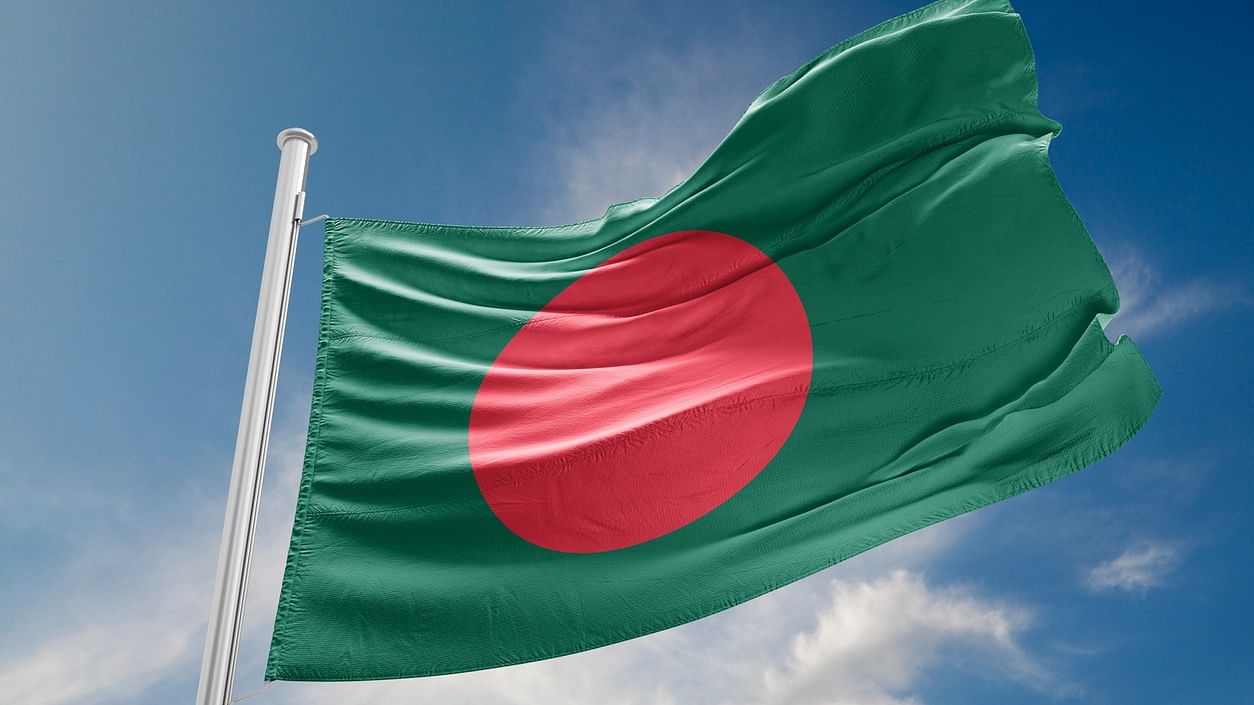
Representative image showing national flag of Bangladesh.
Credit: iStock Photo
Dhaka: Bangladesh on Thursday signed the UN convention against forced disappearance, two days after it formed a commission to trace and identify "each and every" case of forced disappearance during deposed prime minister Sheikh Hasina’s nearly 16-year regime.
“It is a historic occasion,” the press wing of the interim government chief Muhammad Yunus quoted him as saying after he inked the Instrument of Accession to the International Convention for the Protection of All Persons from Enforced Disappearances.
The development comes a day ahead of the UN-declared International Day for the Victims of Enforced Disappearances, observed on August 30, for the convention adopted by the United Nations on December 20, 2006.
“Now, therefore I, Professor Muhammad Yunus, Chief Adviser, declare that the Government of the People's Republic of Bangladesh, having considered the above-mentioned Convention, accedes to the same and undertakes faithfully to perform and carry out the stipulations therein contained," the instrument reads.
Yunus, 84, who comes from the development sector, took over as the Chief Adviser of the interim government in the country on August 8 after Sheikh Hasina resigned and fled to India on August 5 after protracted violent demonstrations.
Later, Yunus posted on X from his official account of the Chief Adviser of the Government of Bangladesh: “Bangladesh on Thursday signed the instrument of accession to the International Convention for the Protection of All Persons from Enforced Disappearance, demonstrating its commitment to investigate each and every case of enforced disappearances.” “With this, Bangladesh is now party to all nine core human rights treaties, manifesting people's aspirations to uphold freedom and justice for everyone,” the post added.
Yunus’ interim government on Tuesday formed the five-member Commission that has been entrusted “with the task of tracing and identifying the missing people and investigating the circumstances under which they were forcibly disappeared by various intelligence and law enforcement agencies.” The Commission has been asked to investigate the cases of forced disappearance between January 1, 2010, and August 5, 2024, when Hasina’s regime was ousted in a student-people mass upsurge.
The commission has been asked to submit its report to the government in 45 working days.
Police and military forces and their intelligence and related agencies including National Security Intelligence (NSI) and Directorate General of Forces Intelligence (DGFI) would come under the purview of the investigations for their alleged role in the cases of forced disappearance.
Global rights watchdog Human Rights Watch referring to Bangladeshi rights groups alleged that the country’s security forces have committed over 600 enforced disappearances since 2009.
After the ouster of the Hasina government, several civil and former military people including a former diplomat came out of secret jails dubbed earlier as “aina ghar” or “mirror room,” and alleged that they were kept in complete isolation with no link with the outside world for years.
They also alleged during their secret captivity they were exposed to torture as well.